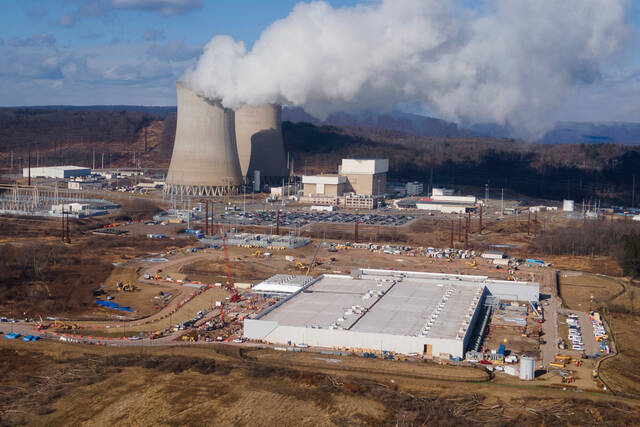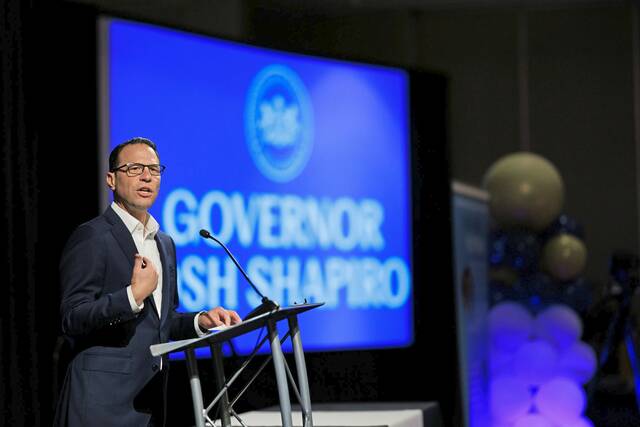As Pennsylvania’s budget impasse reached 36 days Tuesday, the highest-ranking Republican in the state Senate said lawmakers should consider adopting a six-month spending plan that maintains last year’s funding levels for many essential services while negotiations continue on thornier budgetary issues.
“If we can’t come to agreement (on an overall budget) in the next week or so, then we need to make sure we can keep money flowing so that schools, hospitals and important social services do not have to suffer,” state Senate President Pro Tempore Kim Ward, R-Hempfield, told TribLive on Tuesday.
The chamber’s top-ranking Democrat, Senate Minority Leader Jay Costa of Forest Hills, dismissed that idea.
“We have one main job, and that is to pass a budget. We have an obligation to get back to Harrisburg and hammer out a budget for the entire fiscal year. Doing otherwise does a disservice to the people of Pennsylvania,” Costa said, adding that he doesn’t think there is any Democratic support for adopting a partial-year budget.
Gov. Josh Shapiro’s administration warned last week that school districts, counties and various service providers could see delays in more than $2.5 billion in payments through August because of the budget impasse.
Ward likened the Shapiro administration’s warnings to “gaslighting” the public.
“(Democrats) are trying to rile people up. That’s not necessary. We can fund these line items temporarily so people do not have to suffer,” Ward said.
Pennsylvania last passed a partial-year budget in 2020, as it faced fiscal uncertainty related to the covid-19 pandemic. An initial five-month stopgap budget maintained most funding levels from the previous year through November 2020, when the state adopted another spending plan to get through the rest of the fiscal year.
The deadline to adopt a budget for this fiscal year was June 30. The state lost some of its spending authority after failing to adopt a budget by the deadline but is still legally obligated to provide money for essential services such as state police, Medicaid costs and debt payments.
State lawmakers have missed their mandated budget deadline 14 of the past 22 years.
In the $51.5 billion spending plan laid out in February by Shapiro, a Democrat from Montgomery County, the governor proposed boosting state spending on Medicaid by more than $2 billion and increasing education funding by more than $800 million. It would have relied on using $4.5 billion of the state’s $11 billion in reserves to balance.
In mid-July, the Democratic-controlled House advanced a pared-down, $50.6 billion plan to the Republican-controlled Senate. Party leaders and the governor’s office have been negotiating since.
Noting that Republicans have insisted on limiting spending to $49.9 billion, Costa said, “We’re only $700 million apart.”
“The question for Republicans is, ‘Where would you make cuts to get to that number?’ ” Costa said early Tuesday afternoon. “The frustrating part is that I don’t feel like we’re any closer (on a budget resolution) now than we were a month ago. We’re so far down this path, and there’s no sense of urgency.”
Key sticking points for Republicans have included regulating and taxing video gambling machines and finding ways to address the state’s structural deficit — bringing spending in line with revenues so the state doesn’t have to consistently rely on reserves to balance budgets. Democrats are looking to boost funding for public transit agencies and public schools.
Last month, the House approved a proposal by Shapiro to increase the share of existing sales and use tax revenues it dedicates to public transit from 7.68% to 9.43%, a move that would generate an estimated $292 million in new annual revenue for transit agencies across the state, along with additional money for road and bridge work. The Senate has not acted on that proposal.
The state’s largest transit agencies, SEPTA in southeastern Pennsylvania and Pittsburgh Regional Transit, are planning significant service cuts and fare increases because of budget shortfalls.








